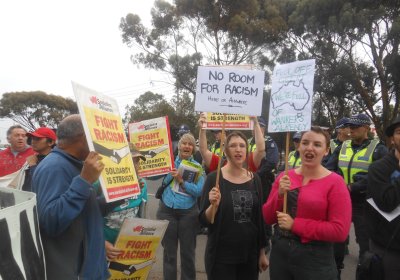While the debate on free speech has largely focused on the "rights" of racists and bigots, federal and state governments have been quietly passing new laws that strip citizens of the freedom of speech that is essential to democratic deliberation.
free speech
Sections 18C and 18D of the Racial Discrimination Act — the law against racial vilification — are under renewed attack from the right. These attacks have the backing of Rupert Murdoch's media empire and the support of the federal government, which has announced a parliamentary inquiry to determine whether this law imposes unreasonable limits on free speech and recommend whether the law should be changed.
Section 18C of the Racial Discrimination Act — Australia’s federal hate speech law — has tended to dominate public debate about free speech for the past few years. This has meant other important laws that restrict free speech in broad ways are being overlooked.
While the 18C debate has raged, important new restrictions on freedom of speech have been introduced in Australia. These have flown much further under the radar. These restrictions should concern us, because they have a wide-ranging impact on the freedom of speech that is essential to democratic deliberation.
In an attempt to avoid anti-racist protesters, the February 18 meeting to launch the Australian speaking tour of Dutch far-right politician Geert Wilders, was, at the last moment, moved to a desolate, non-residential part of Somerton on Melbourne’s northern edge. More than 200 anti-racists, however, picketed Wilders’ meeting while another 100 protested in Melbourne CBD, where one of the speakers was Greens Senator Richard Di Natale.
- Previous page
- Page 2









